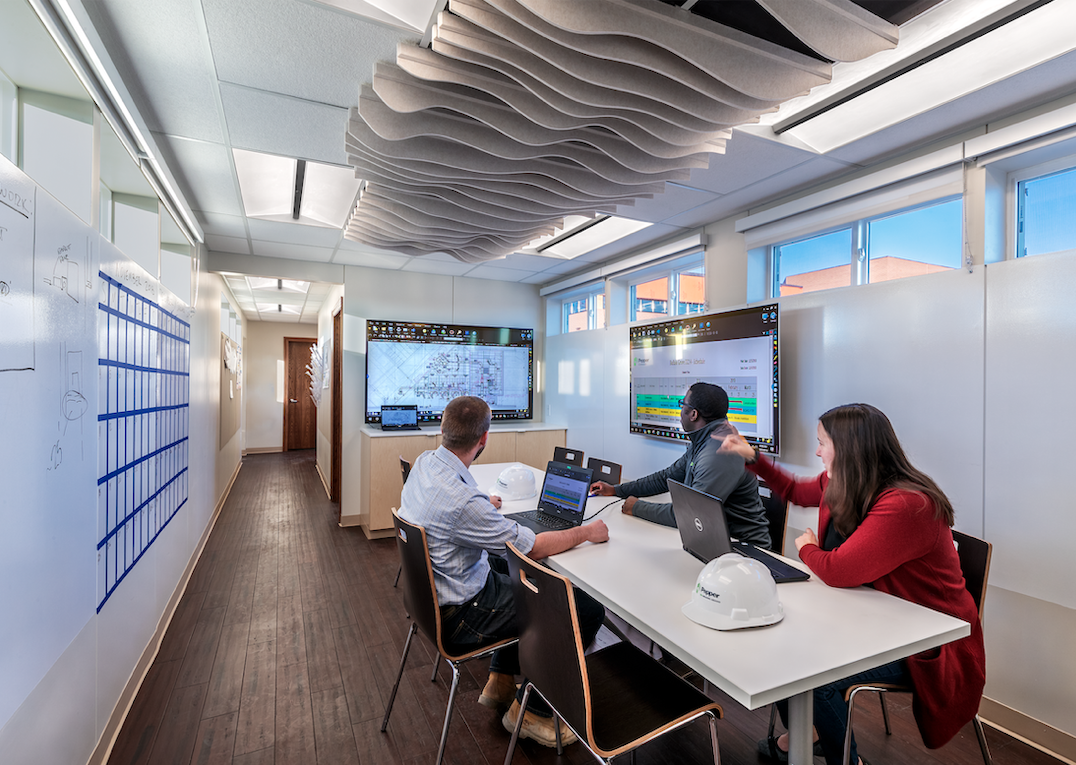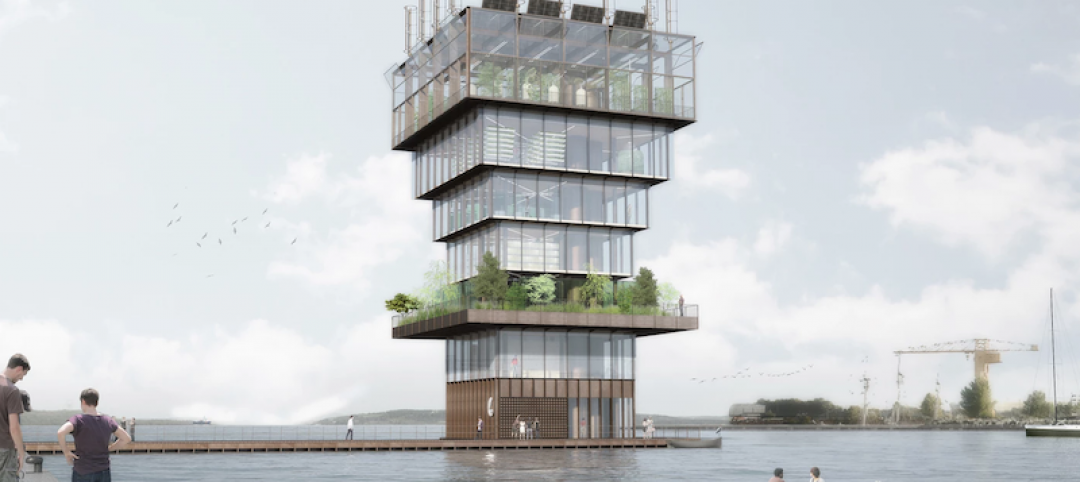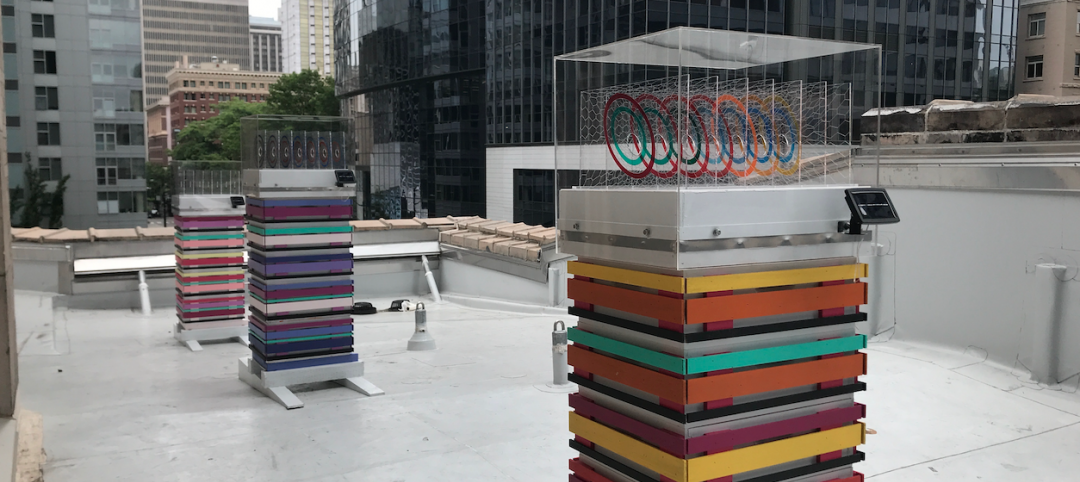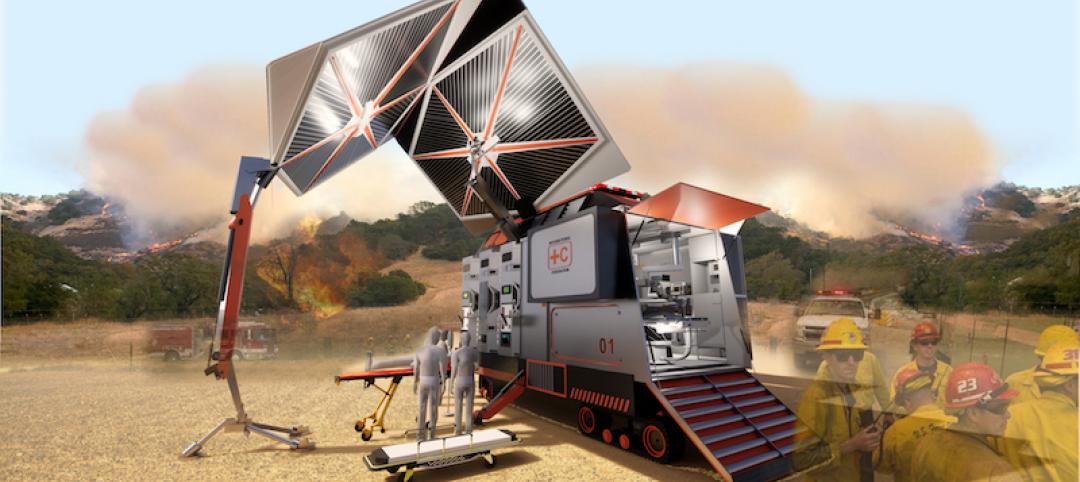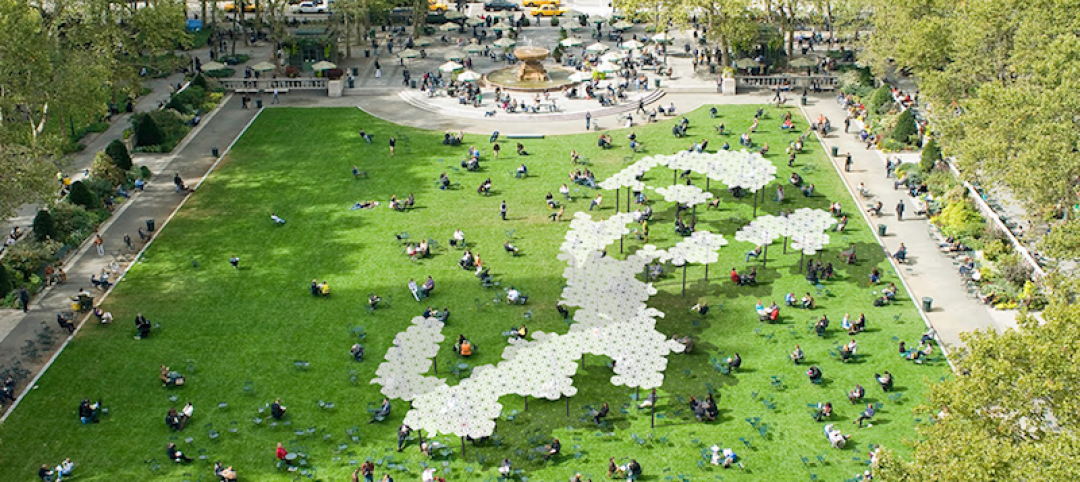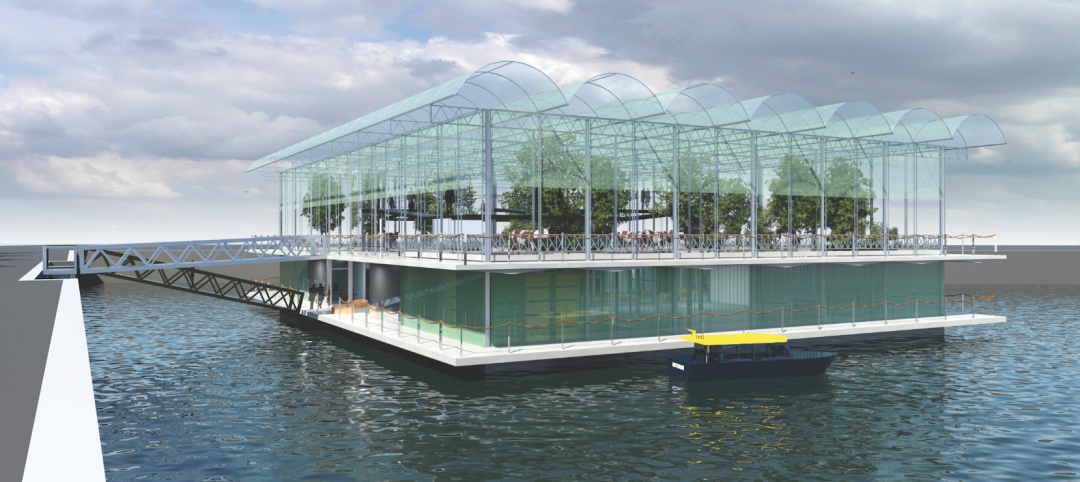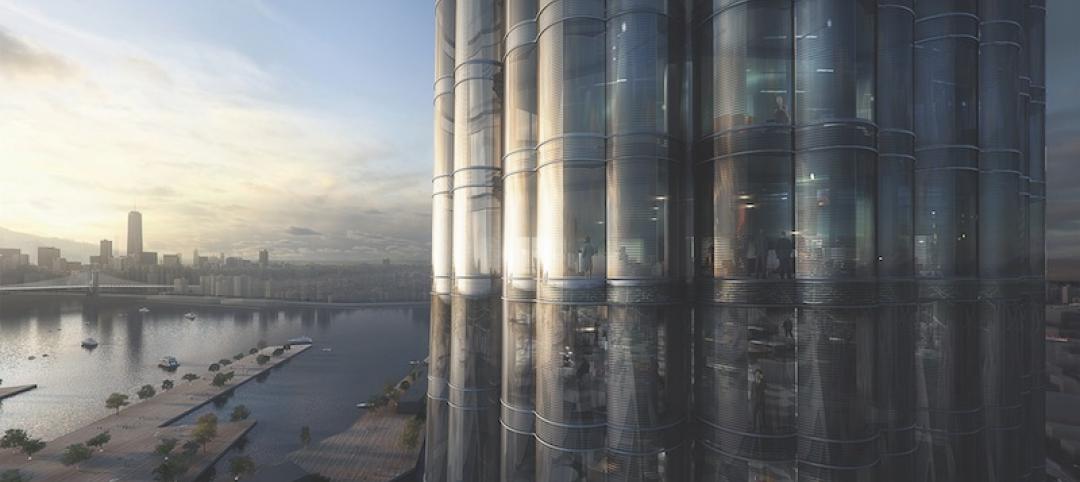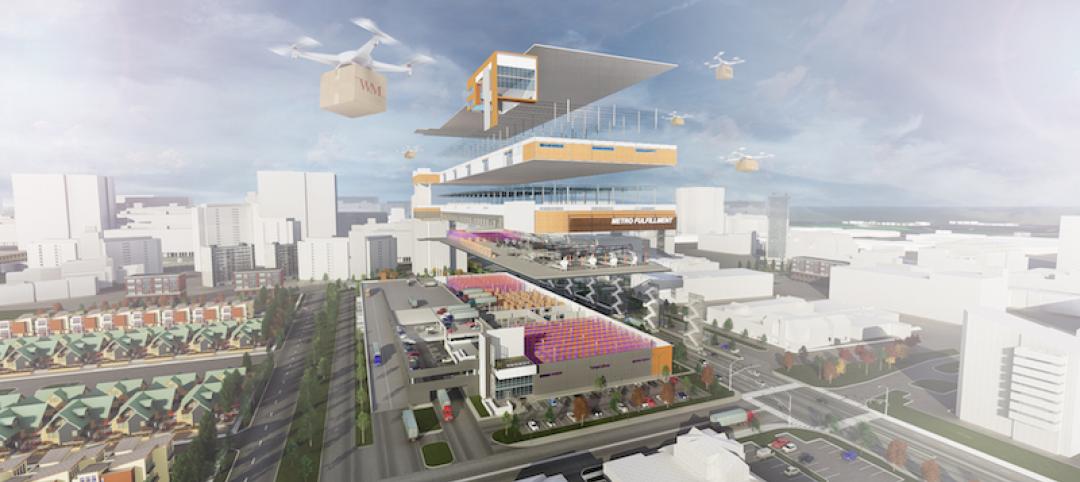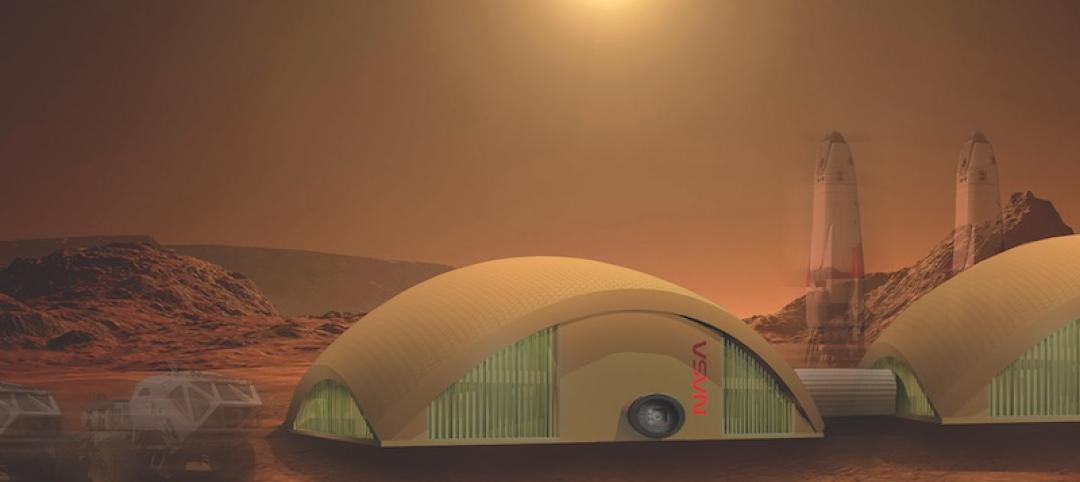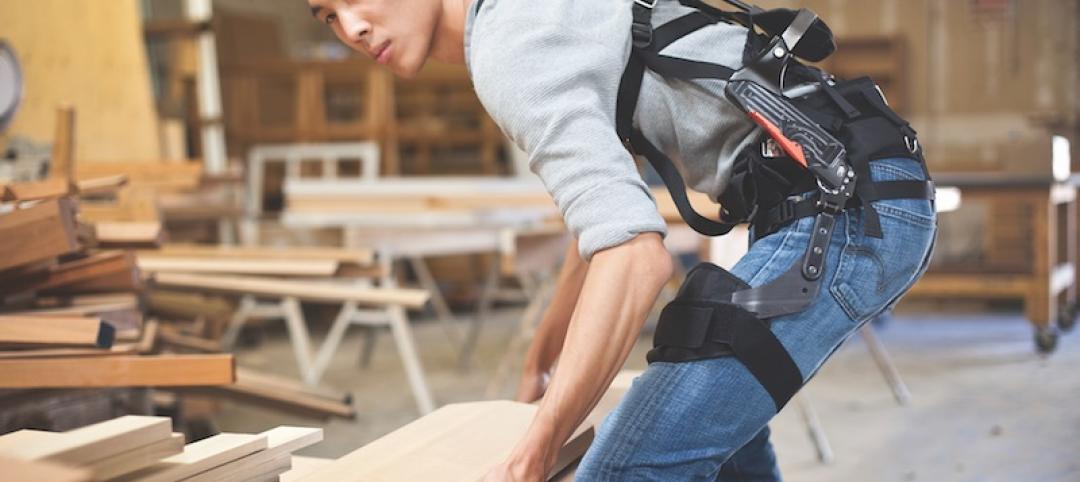The AEC industry has gone all in on sustainability, energy efficiency, and occupant health and wellness. These elements are woven into the fabric of just about every new building, including AEC firms’ own offices.
However, there’s one critical workspace that remains an afterthought when it comes to sustainability, health, wellness, and productivity: the jobsite trailer.
Chicago-based Pepper Construction has a plan to bring its jobsites up to speed. In November, at the Greenbuild show, the contractor unveiled its Net Zero Jobsite Trailer. The 12x60-foot structure is designed to focus on the human experience, productivity, and quality from every aspect to make sure employees in the field have the same wellness features as those in a traditional office setting.
See Also: A modular, scalable mobile hospital can quickly respond to natural disasters and crises
“Most people spend about 90% of their time indoors, and that environment has a significant impact on our health,” says Susan Heinking, AIA, LEED Fellow, Pepper’s VP of High Performance and Sustainable Construction, who led the project. “That philosophy also applies to the men and women working on our jobsites. We want our trailer to match our values.”
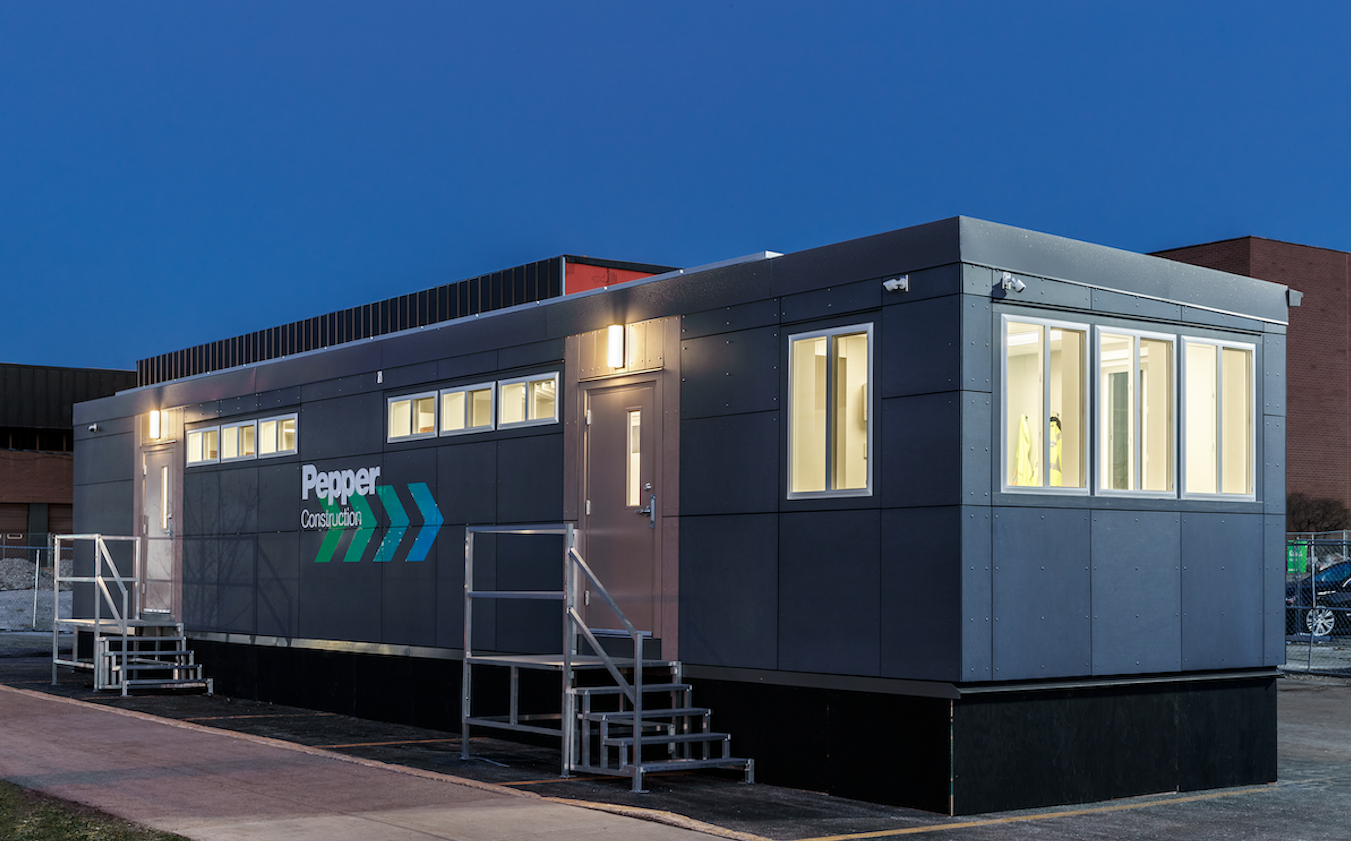 The trailer’s exterior is clad in cement fiber panels and illuminated with daylight-sensing light fixtures. Photo: ©2018 Ballogg Photography
The trailer’s exterior is clad in cement fiber panels and illuminated with daylight-sensing light fixtures. Photo: ©2018 Ballogg Photography
A traditional jobsite construction trailer emits 53,712 lb of CO2 emissions into the air each year, making its carbon footprint equivalent to the energy use of four residential homes. The Net Zero Trailer is designed to greatly minimize its overall energy use, which is then offset with rooftop photovoltaic panels.
Cement fiber panels clad the trailer and reduce heat absorption. Six inches of rigid insulation increase energy efficiency, eliminate temperature swings, and double the R-values for the walls, floor, and roof, which range from R-30 to R-40. On the roof, three strings of nine commercial solar panels convert four hours of sunlight into the energy needed to power the trailer for a full work day.
Double-pane, low-argon windows are fitted with transparent shades for glare control and are operable to provide fresh air. Natural light pours in through these windows, greatly reducing the need for lighting. When artificial lighting is necessary, a wireless low-consumption system with integrated occupancy and daylight sensors activates.
The trailer features a meeting room that can hold up to 14 people and hoteling space for visitors. Above the meeting room is recycled, bio-formed felt that provides sound absorption. The flexible workspace includes stand-up desks, folding Red List-free furniture, and storage lockers. A full-amenity kitchen, equipped with appliances and fixtures, is included to eliminate restrictions on occupant diets.
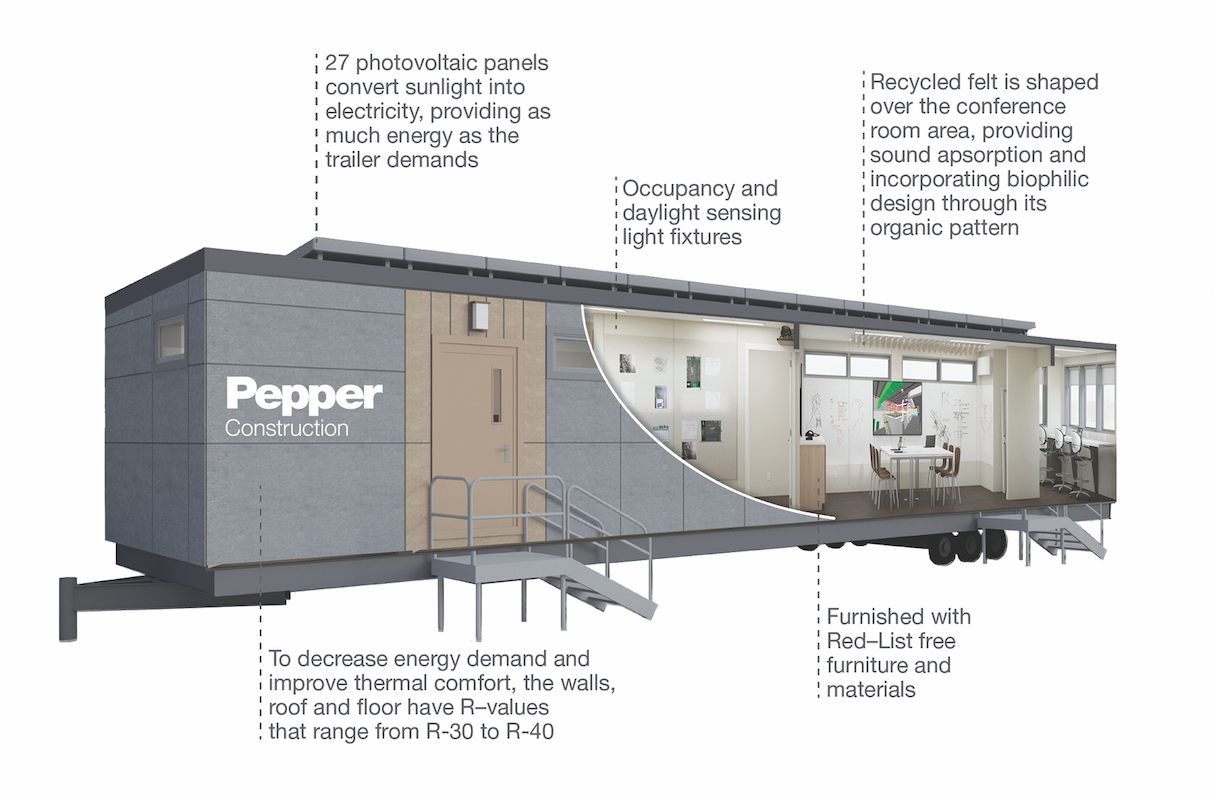
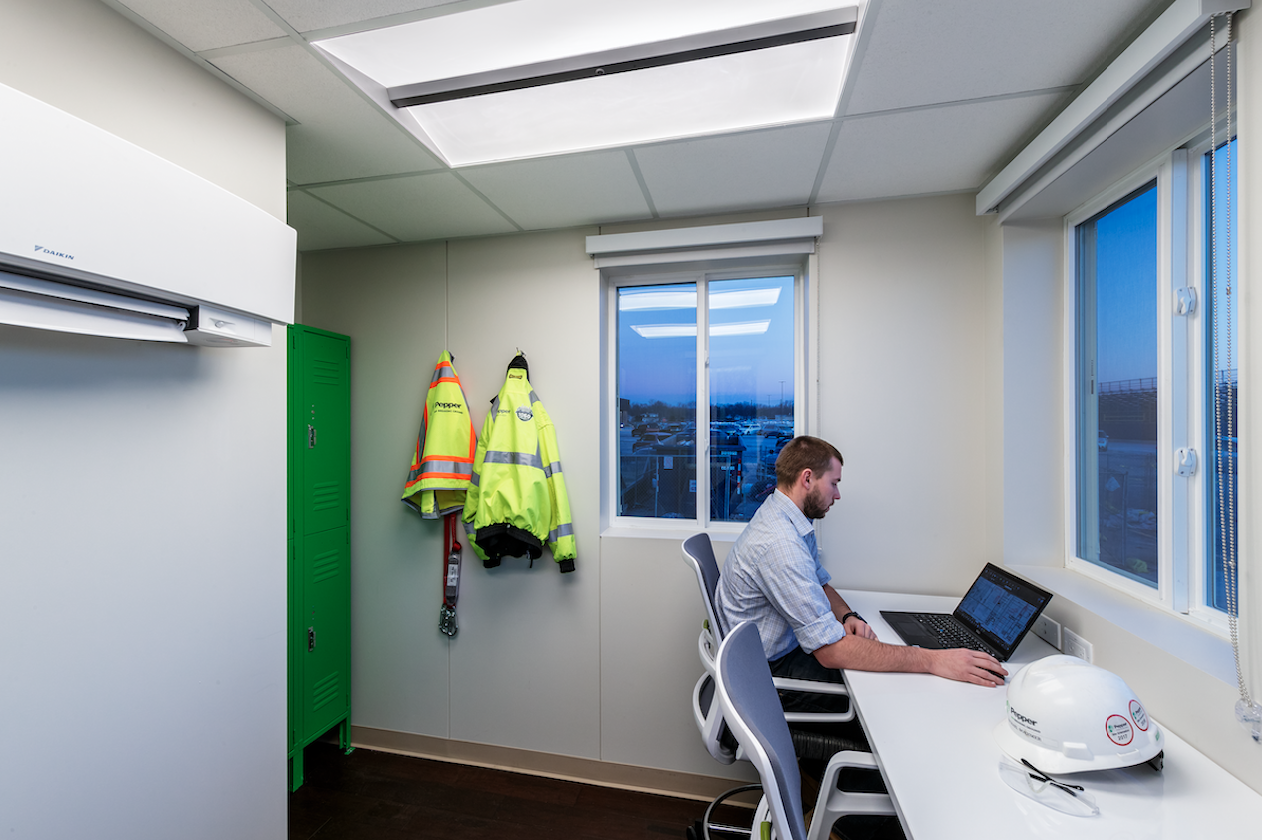 Details such as locker storage and flexible work space transform previously utilitarian conditions into a modern, healthy workspace. Photo: ©2018 Ballogg Photography.
Details such as locker storage and flexible work space transform previously utilitarian conditions into a modern, healthy workspace. Photo: ©2018 Ballogg Photography.
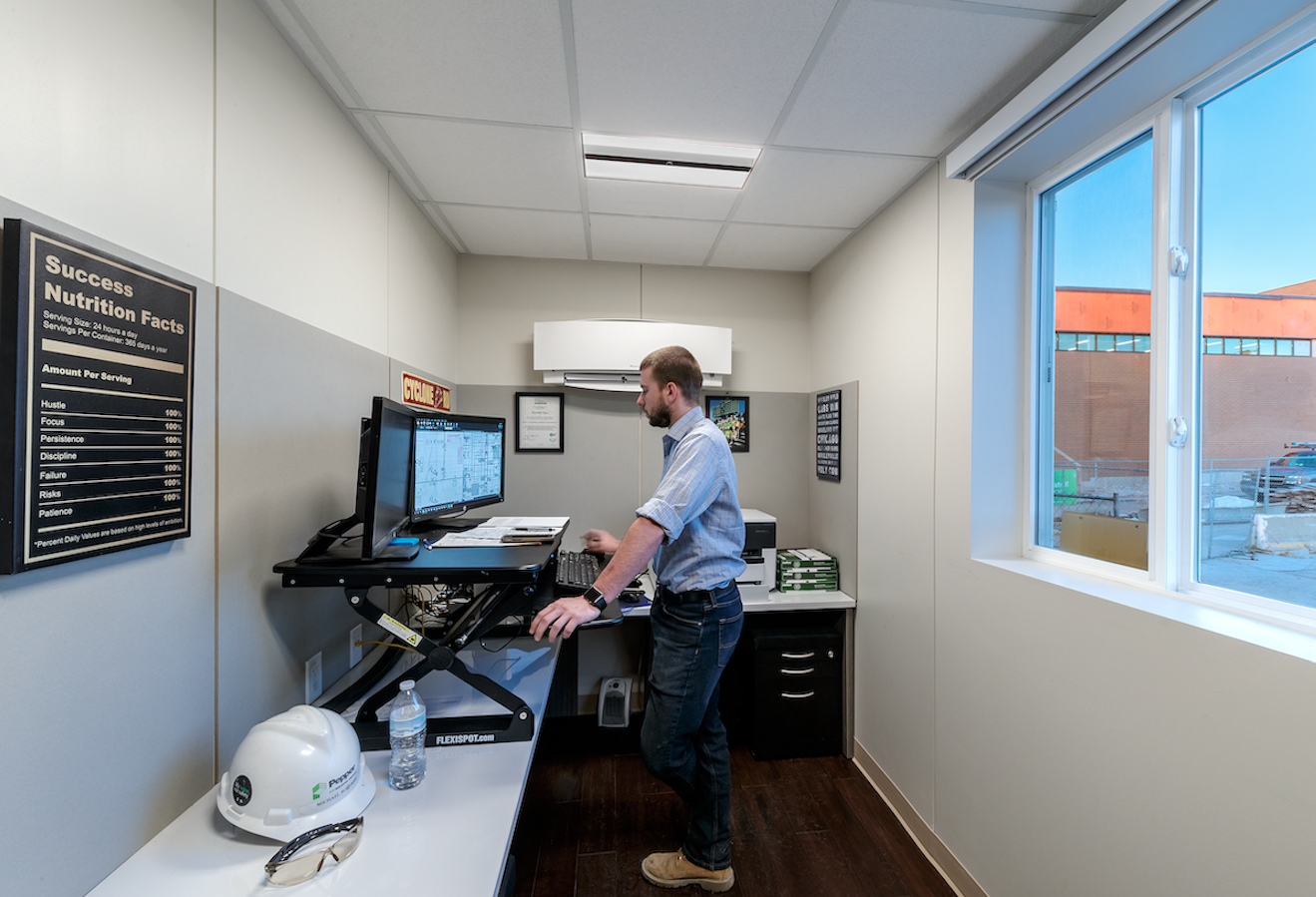 Built to be paperless, the superintendent’s office is equipped with stand-up desks and occupancy-sensing air conditioning. Photo: ©2018 Ballogg Photography.
Built to be paperless, the superintendent’s office is equipped with stand-up desks and occupancy-sensing air conditioning. Photo: ©2018 Ballogg Photography.
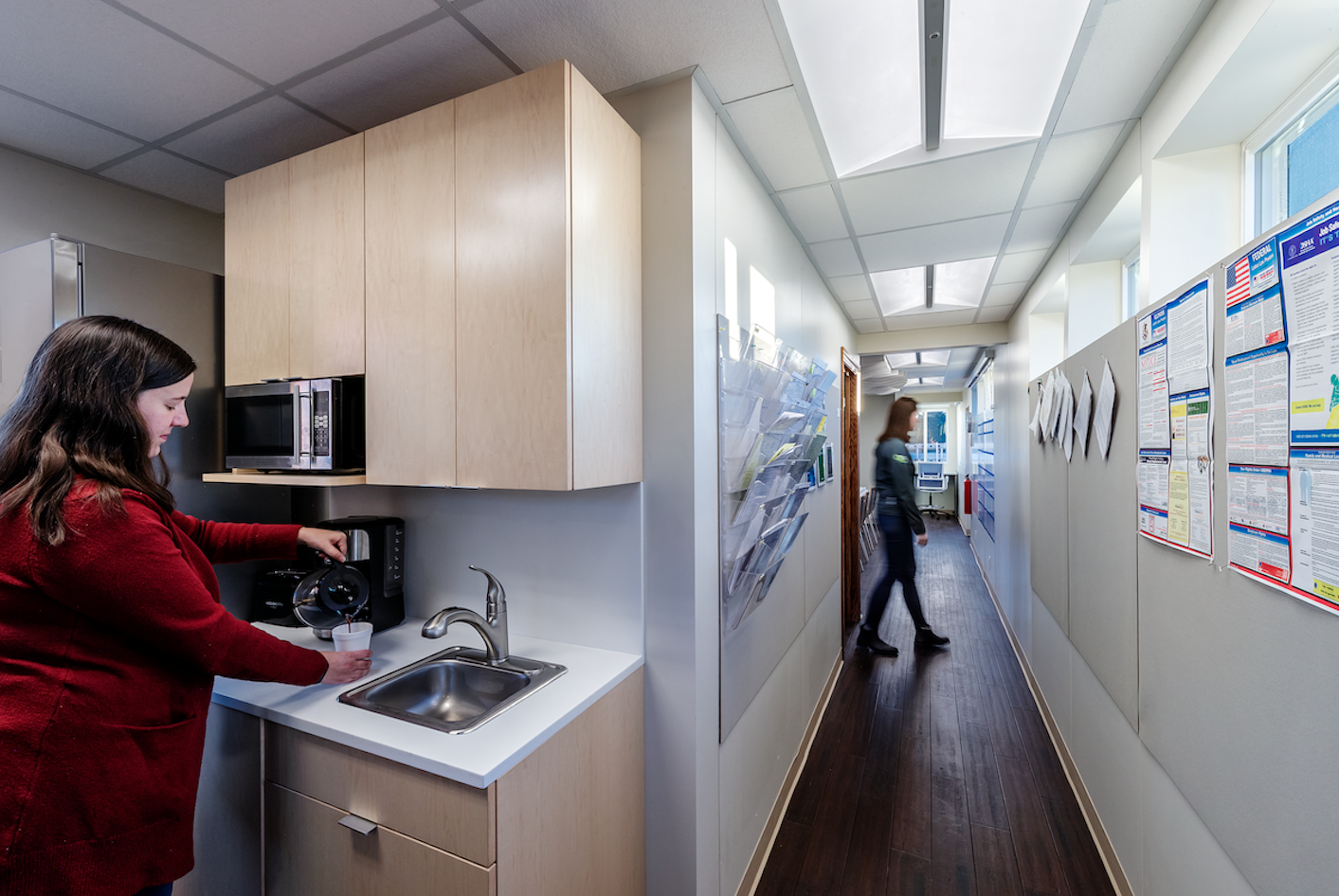 The full-amenity kitchen enables employees the opportunity to pursue healthier eating habits. Photo: ©2018 Ballogg Photography.
The full-amenity kitchen enables employees the opportunity to pursue healthier eating habits. Photo: ©2018 Ballogg Photography.
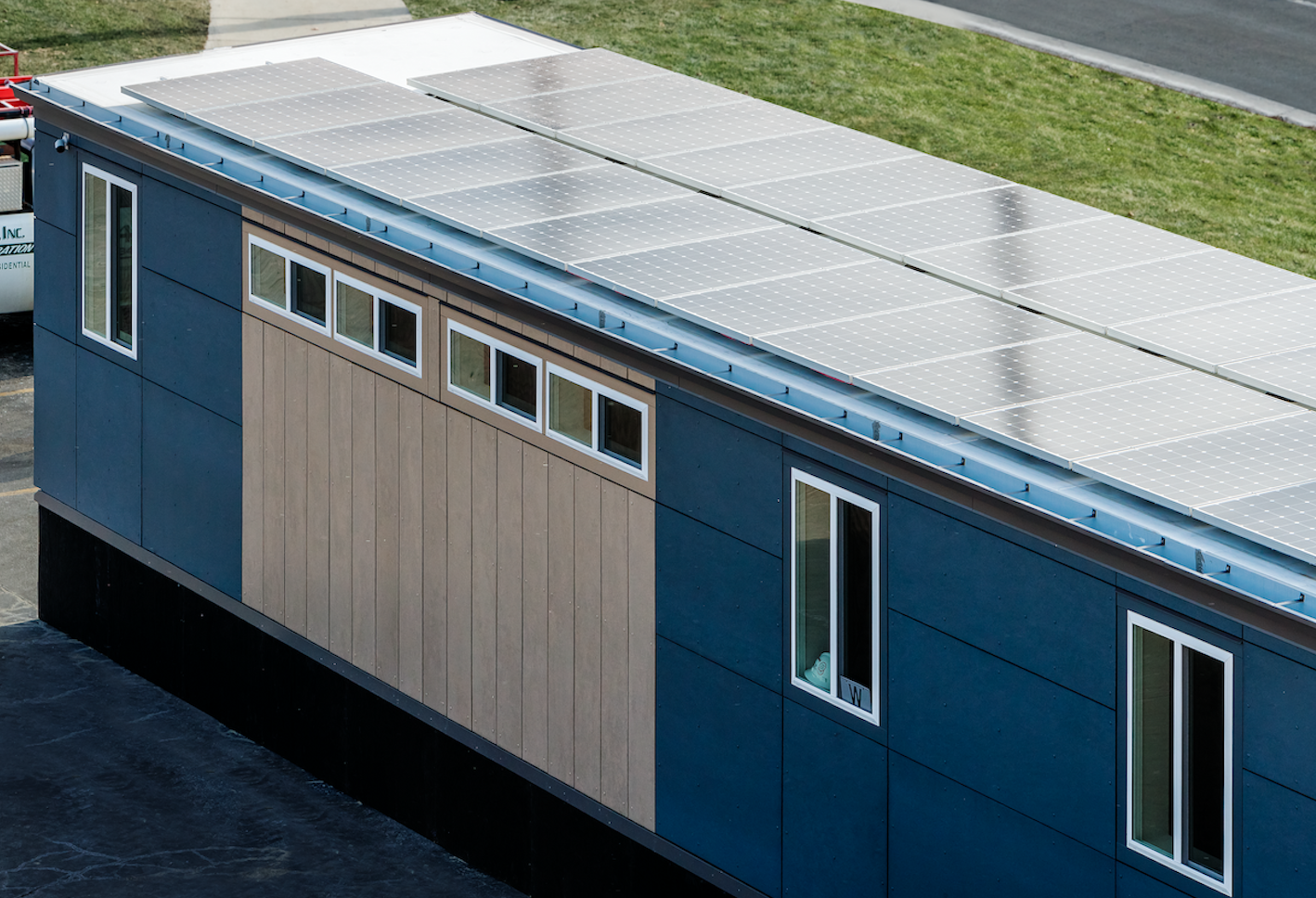 With as little as four hours of daylight, the solar panels produce enough energy to exceed the trailer’s daily energy demand. Photo: ©2018 Ballogg Photography.
With as little as four hours of daylight, the solar panels produce enough energy to exceed the trailer’s daily energy demand. Photo: ©2018 Ballogg Photography.
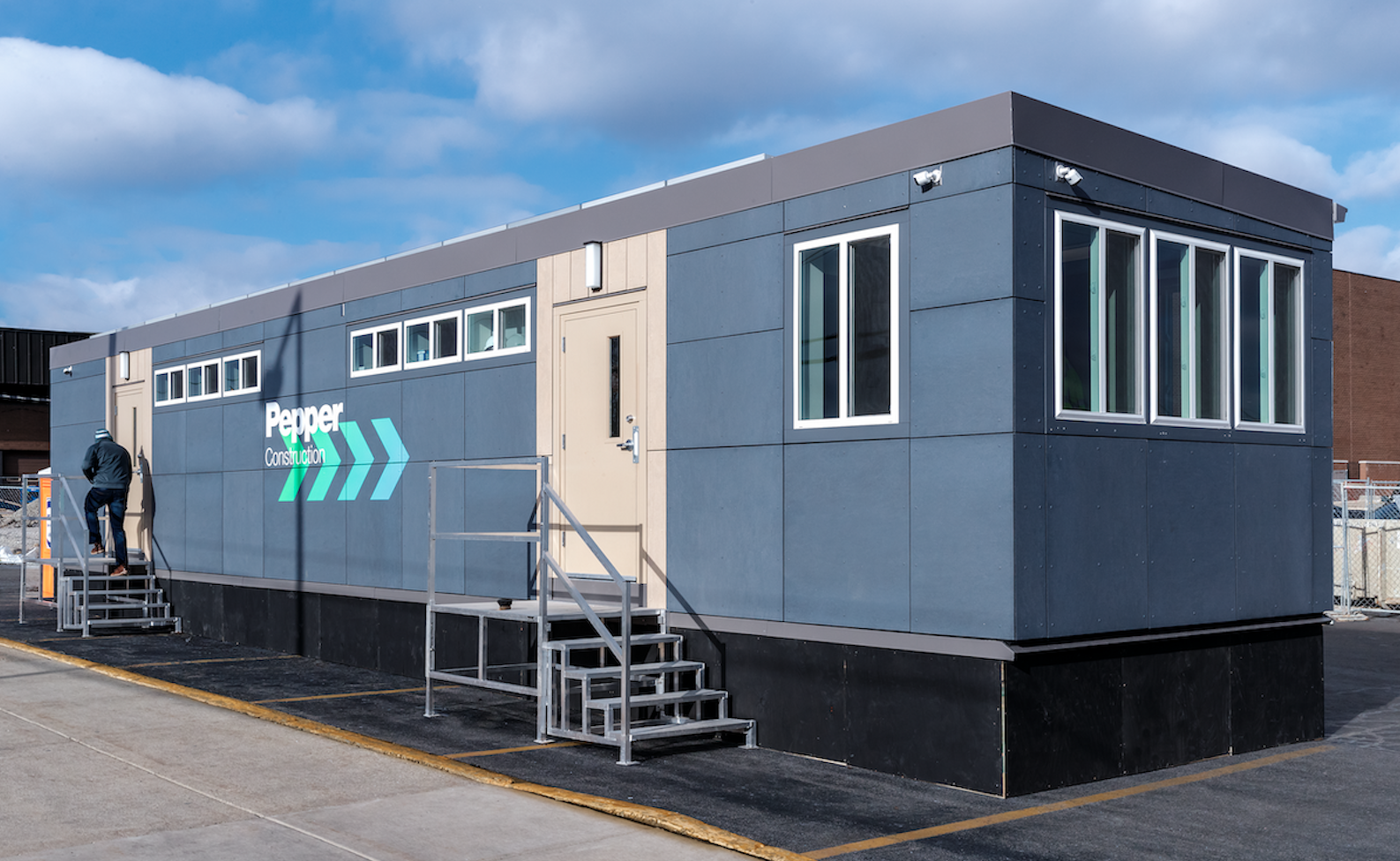 Pepper vetted the design through an energy model to ensure the trailer performs at peak levels. Photo: ©2018 Ballogg Photography.
Pepper vetted the design through an energy model to ensure the trailer performs at peak levels. Photo: ©2018 Ballogg Photography.
Related Stories
Sustainability | Feb 20, 2019
Studio NAB’s Superfarm project creates an entire ecosystem in an urban environment
The Superfarm will go beyond what vertical farms typically produce.
Great Solutions | Feb 7, 2019
An apiary for the sanctuary
A Seattle events venue, The Sanctuary, has a roof that is literally a hive of sustainability.
Great Solutions | Dec 12, 2018
A modular, scalable mobile hospital can quickly respond to natural disasters and crises
CallisonRTKL’s design combines artificial intelligence, electric vehicle technology, and the latest in medical equipment.
Great Solutions | Nov 8, 2018
Public canopy system can be reconfigured by drones on the fly
The installation combines cyber-physical building materials constructed from lightweight carbon fiber filament with a collection of autonomous drones.
Great Solutions | Sep 28, 2018
When pigs fly? How about when cows float?
Merwehaven Harbor in Rotterdam will be home to the world’s first floating farm.
Great Solutions | Sep 17, 2018
Curtain walls go circadian
Catering to our natural circadian rhythm is a task designers are taking to heart.
Great Solutions | Aug 8, 2018
Warehouses rise up to serve downtown
Multistory industrial buildings provide the best chance at keeping up with the rapid growth of e-commerce in North America.
Great Solutions | Jul 13, 2018
Fungus may be the key to colonizing mars
A Cleveland-based architect and a NASA Ames researcher have a novel idea for building on Mars.
Great Solutions | May 14, 2018
It’s not Ripley’s loader, but this industrial exoskeleton makes physical labor a breeze
SuitX modules can be used separately or combined to form a full-body exoskeleton.
Great Solutions | Apr 5, 2018
IAQ monitoring for all
San Francisco startup Bitfinder debuts a commercial-grade version of its air quality monitoring system.


